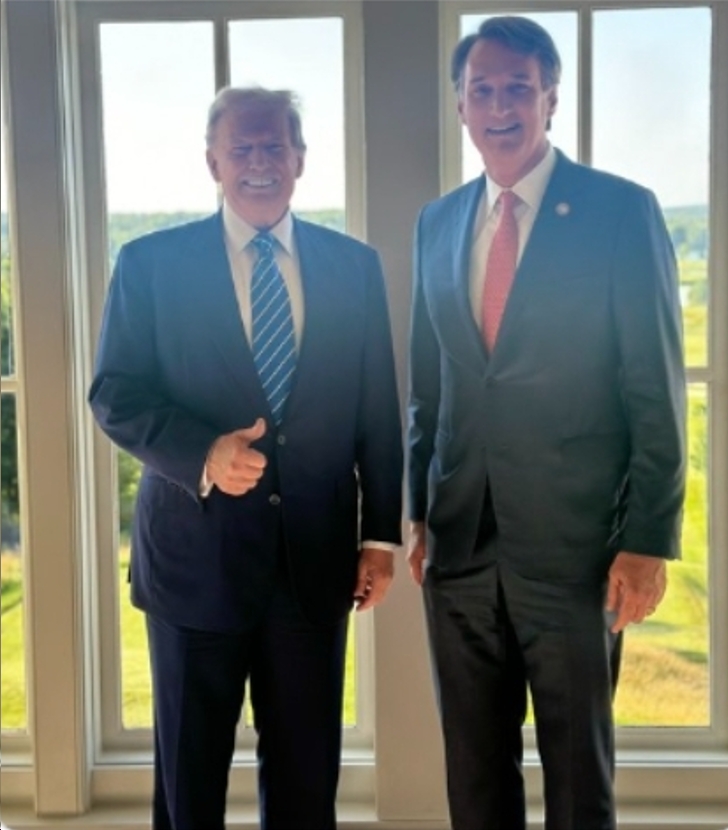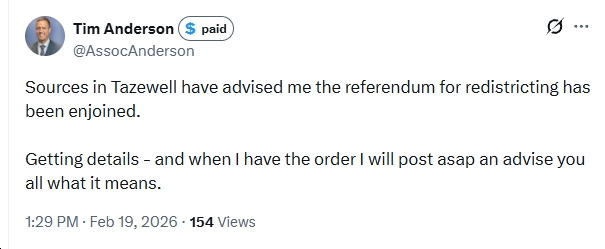by Cindy
Growing up in California, and arriving to Virginia via Austin, Texas, I knew more about Lady Bird Johnson than about her son-in-law, Chuck Robb, former U.S. Senator and, before that, Governor of Virginia. (In fact, the Lady Bird Johnson Wildflower Center opened in Austin while I was living there, and wildflowers being the best thing about Texas after BBQ, I became quite a fan of the former First Lady.) But as I’ve gotten more involved in Virginia and her politics, I’ve heard many bits and pieces about Chuck Robb, and I was excited to see that he was publishing his autobiography, In the Arena: A Memoir of Love, War, and Politics.
The title comes from a Theodore Roosevelt quote about taking action when duty calls: “The credit belongs to the man who is actually in the arena, whose face is marred by dust and sweat and blood…who knows the great enthusiasms, the great devotions, who spends himself in a worthy cause.” Robb himself clearly has spent his life in the arena, fighting for those causes. Although the book is mainly organized chronologically, for fun, I’ll talk about it in the order in the title: love, war, and politics.
Love
Right on the first page, before the text even starts, the dedication reads: “To Lynda, from whom I learned about unconditional love.” Lynda of course is his wife, Lynda Robb, the daughter of President Lyndon B. Johnson and Lady bird Johnson. After Robb joined the U.S. Marines in 1960 during college, he finished its grueling training top in his class, and was assigned to serve as military social aide to the White House. He and Lynda developed a friendship, played a lot of bridge, and eventually they fell in love. They decided to get married, and because Robb expected to ship out to Vietnam soon, they had an inordinately short amount of time to prepare for what was the first wedding held in the White House since 1914. As was his nature, Robb was calm, focused, and confident. “Many a groom has had an attack of the jitters … But as I stood in my dress blue uniform watching my beautiful bride walk down the aisle, I felt nothing but comfort and certainty.” The next day, the Secret Service whisked the happy couple away from the paparazzi to an undisclosed honeymoon location that they have kept secret to this day.
Lynda and Chuck are still married today, 53 years later. Their love has withstood long and frequent absences due to Robb’s service in Vietnam and his political career; the strains of campaigning and public service; and unsubstantiated rumors of infidelity. They have three daughters, who Robb mentions quite fondly throughout the book. But this isn’t the only type of “love” the title refers to. At the rehearsal dinner before their wedding, Lynda reads a letter Robb’s grandfather had written to him on his first birthday: “May love of country, love of liberty in its finest sense (in defense of both of which you must ever be ready to offer your life if necessary) always find sanctuary in your heart.” This love of country has clearly shaped Robb’s life—from his enlisting in the Marines, to his requesting active duty in Vietnam, his public service upon returning, and his involvement with trying to shape and steer the Democratic Party.
War
Robb had repeatedly requested an assignment to active duty, in Vietnam (wanting to be in the arena). When his request was finally granted, just months after his wedding, he was given command of India Company, 3rd Battalion, 7th Marines. Robb spends several chapters describing his time in Vietnam, the armed combat he and his battalion engaged in, the people who died right before his eyes, land mines, ambushes, explosions that narrowly missed him, and even a reported plot to kidnap him. He tried to make sure no one treated him any differently because he was the President’s son-in-law. “The men in my company came from every walk of life, and every part of the country. Military service is one of the rare equalizers in our society, and the strength of our training and our experiences in battle developed a strong bond between brothers-in-arms.” He talks about the pride he felt in the incredible discipline that his company had, a discipline that prevented the number of casualties from being much higher. Ultimately, he too-modestly concludes though that “my service in Vietnam was no more or less remarkable than that of the other Marines with whom I served.”
Thirteen months after leaving for Vietnam, Robb returned home to a very changed America. His father-in-law was no longer President, Dr. Martin Luther King, Jr. and Senator Bobby Kennedy had been assassinated, and anti-war sentiment was high, with the largest anti-war protest in American history taking place just six months later. Robb took on the position of head of the Platoon Leaders Class program, recruiting on college campuses—often putting him face to face, in his Marine uniform, with the most vehement anti-war activists. “The dialogue surprised some students, who must have expected me to simply spout promilitary rhetoric at them. At the very least, I hoped to give them a sense that I, like other returning veterans, was not an automaton or a warmonger, but a human being, not so different from any of them and fully capable of developing personal opinions.”
Although he never returned to active duty, his involvement with American military engagement wasn’t completely over. While serving in the US Senate, he was assigned to the Foreign Relations Committee, which meant traveling to countries like Poland, Cambodia, the Kurdish area of Iraq, and even back to Vietnam. And a few years after he left the Senate, Robb served on President George W. Bush’s WMD Commission (the Commission on the Intelligence Capabilities of the United States Regarding Weapons of Mass Destruction), which was tasked with looking into the intelligence errors that led to the incorrect conclusion that Iraq had WMD. Robb had bucked Democratic Party leadership to vote in support of the 1991 Gulf War, but then opposed the 2003 invasion of Iraq, believing that “there were two essential pieces missing from the proposed invasion: there was no broad international support, nor was there a clear plan for what to do once we reached Baghdad.” In just thirteen months, the commission issued a full written report, 95% of the recommendations within the report being formally accepted by President Bush. Shortly thereafter, Robb was named to the bipartisan Iraq Study Group created by Congress to assess the situation in the ongoing Iraq War, and make policy recommendations. He advocated for a temporary surge of force in Iraq in order to stabilize the region long enough to facilitate an eventual withdrawal with the new government there able to control the situation. This was politically risky for the Bush Administration, and was opposed by Democrats in Congress, but ultimately was believed to have been successful.
Politics
After attending the University of Virginia Law School following Vietnam, Robb fairly quickly found his way to politics, starting in the Fairfax County Democratic Committee, and winning election to the State Central Committee. Just two years later, he (perhaps audaciously) decided to run not for some minor local elected office, but for Lieutenant Governor. “The Democratic slate that year highlighted the deep divisions in the post-Byrd Virginia Democratic Party. Our gubernatorial nominee, former lieutenant governor Henry Howell, was adored by the more liberal base of the party, while our nominee for attorney general, Ed Lane, was a die-hard conservative and a favorite of the old Byrd political machine. So, the Democratic ticket in the general election for statewide office in Virginia in 1977 was a liberal (Howell), a moderate (me), and a conservative (Lane), leading Howell to quickly dub it the ‘Rainbow Ticket.’” Robb may not have had political experience, but he had name recognition from his White House wedding, and while the rest of the ticket lost, he won. And just three years later was nominated to be the Democrats’ choice for governor.
Despite a national recession during his term, his administration really made Virginia “irrevocably part of the twentieth century.” His fiscal conservativeness allowed him to net a large surplus that he used to make important investments in children, the elderly, education, and transportation; and to raise teacher pay—bringing them up from 32nd in the nation at the start of his term to the highest paid in the South and at the national average by the end. (Sadly, after decades of Republican control in the legislature and sometimes the governor’s mansion during the 90’s and 00’s, Virginia teachers are back to last in the nation in pay.) He moved Virginia forward by elevating women and people of color into positions within the government where they typically hadn’t been hired—not just within his own administration, but in roles that would continue after he left office, like the State Corporation Commission and the Virginia Supreme Court. “‘In all,’ said the Washington Post, ‘Robb tapped more than 900 women and blacks to state courts, boards, and commissions—effectively showing that Virginia’s revered conservative government would not come tumbling down if white men did not control everything.’”
After leaving the governor’s mansion, Robb went on to advocate for the creation of “Super Tuesday” to give more states influence in the presidential nomination process, and to co-found the centrist Democratic Leadership Council (with accompanying think-tank the Progressive Policy Institute), before eventually deciding to run for the US Senate. During his two terms in the Senate, in addition to undertaking the important work on the Foreign Relations Committee mentioned above, he held to his values, even when that meant taking votes that were politically risky: he supported the invasion of Kuwait; he opposed the Iraq war; he strongly supported gays being allowed to serve in the military, and was disappointed with “Don’t Ask, Don’t Tell;” he supported marriage equality; he supported the Brady Bill, despite Virginia still being a strongly pro-gun state; and he voted against a constitutional amendment banning flag burning. “[Voting against DOMA] was one of my most uplifting votes in the Senate. I was completely sure of where I stood on the issue, and the bill was crystal clear. I knew that my vote would have political ramifications, but what is the point of being reelected, I thought, if I didn’t make a difference while I was in office?”
While he was by no means free of accusations of scandal, some seemingly urged along by none other than former Governor Wilder (you’ll have to read the book to find the details, I don’t want to focus here on that), Robb epitomizes honor and courage—in love, war, and politics. I grew up in a family that was incredibly cynical about politics and politicians. I heard over and over from my family that all politicians lie and cheat. It wasn’t until I moved to Virginia, and became involved at the grassroots level in Virginia politics, that I discovered what a terrible generalization that was. Robb’s memoir lends more evidence contradicting it, and he himself specifically took offense at such generalizations, saying “[w]hat bothered me about A Perfect Candidate [a 1993 documentary about Oliver North’s campaign for Robb’s Senate seat] was the film’s cynical overall message about American politics: a plague upon both candidates…I found the idea that all politicians were cut from the same crooked cloth very troubling, and yet, by the mid-1990s, it was already deeply-ingrained in our culture and our media.” I’m glad to have found that cynicism to be unmerited. Robb’s grandfather said, in an unpublished manuscript, that “an American citizen’s most important duty is to realize that politics—no matter how offensive it be to the sensitive, lofty nostril—is the science of government, and to delve into it.” I couldn’t agree more.


















